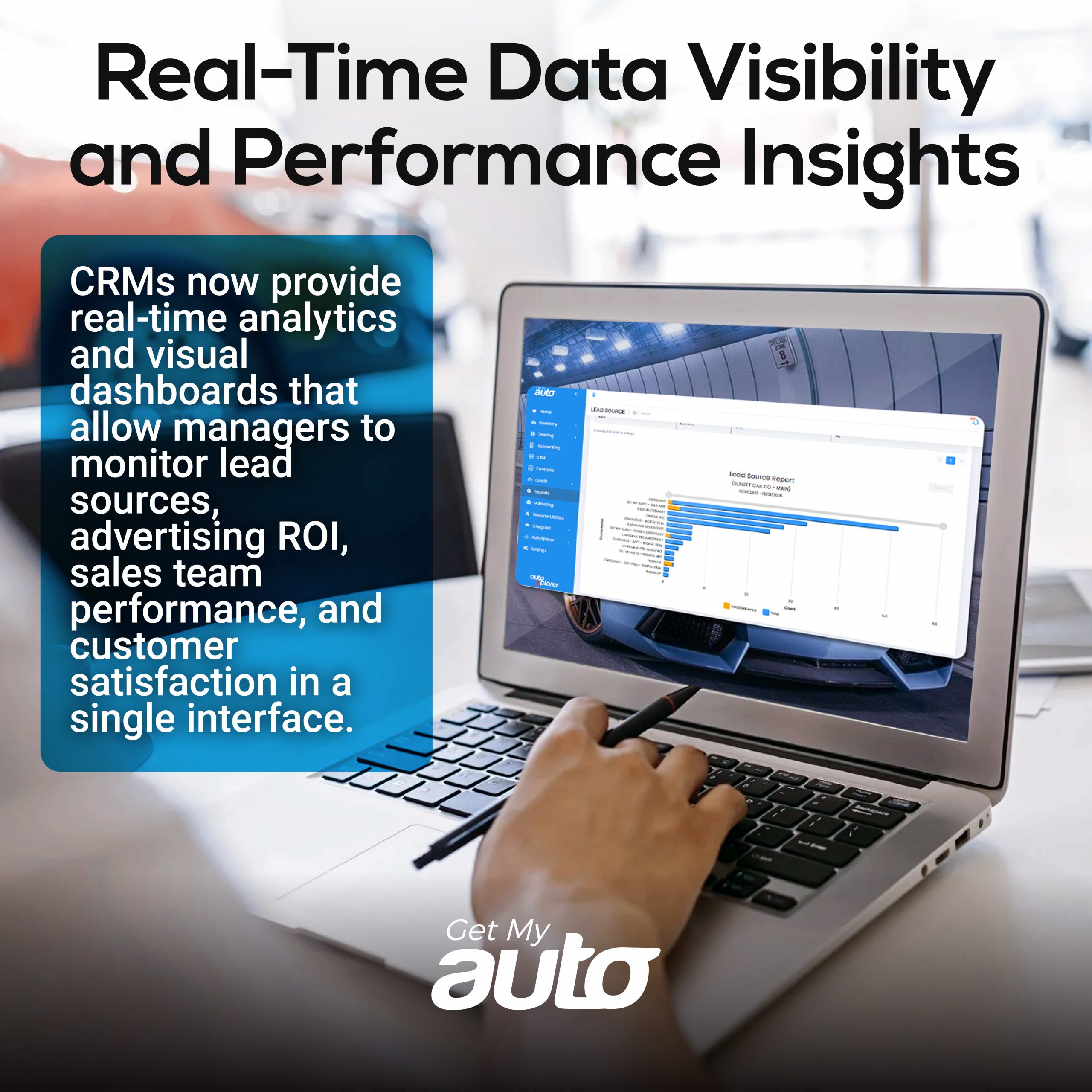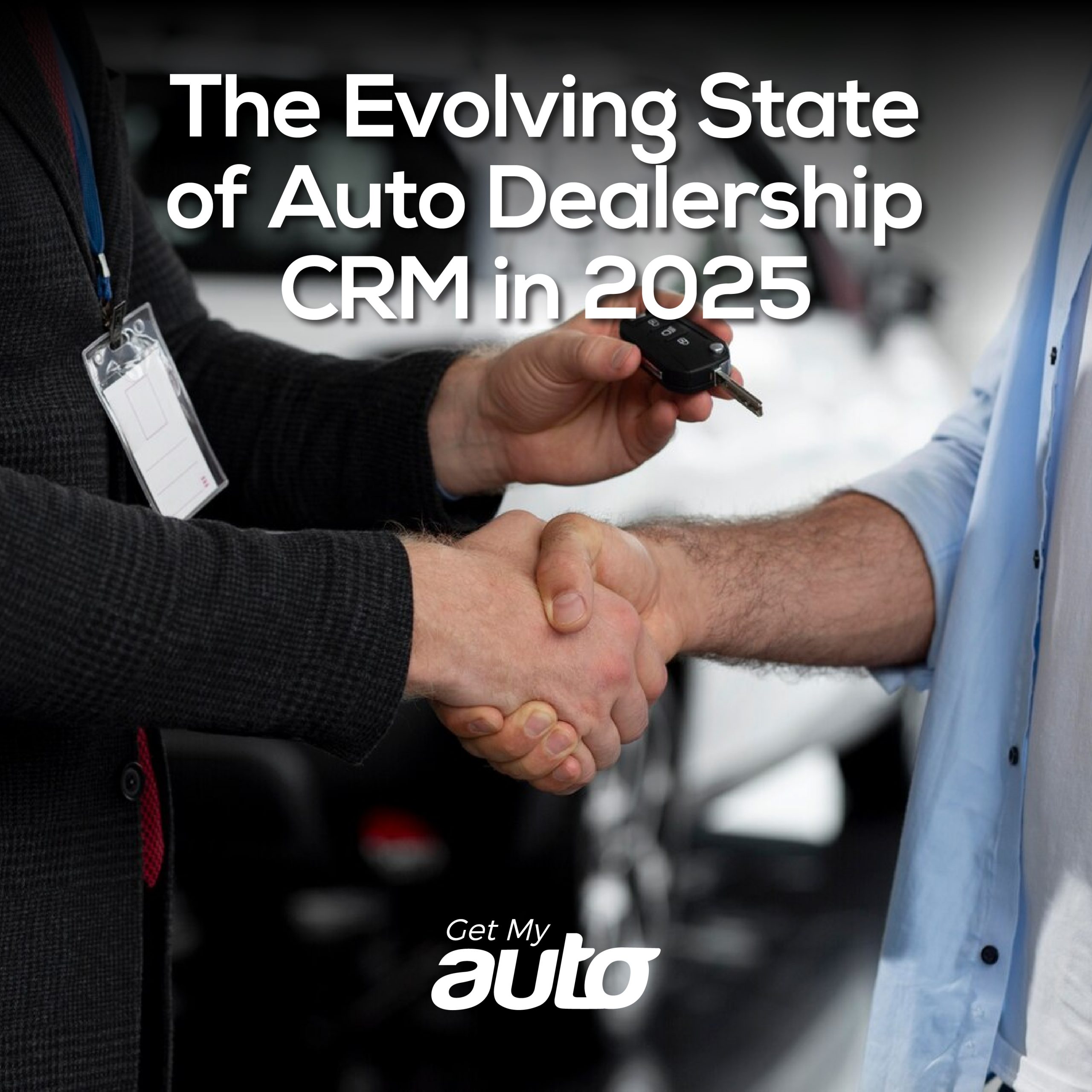The New Era of Dealership Intelligence
In 2025, the automotive retail industry is undergoing a historic transformation. What was once a straightforward sales model centered around in-person interactions and manual follow-ups has become a data-driven, technology-powered ecosystem. The modern auto dealership now operates at the intersection of artificial intelligence, automation, and customer-centric strategy.
At the center of this change is the Customer Relationship Management (CRM) system. The CRM is no longer a static database of names and phone numbers. It has become the operational backbone that connects sales, finance, marketing, and service into a unified digital framework. When used correctly, a dealership CRM can identify high-intent buyers, nurture prospects through multiple channels, and maintain relationships long after the sale.
However, not all dealerships are keeping pace. While many understand the strategic importance of CRM, they still face challenges such as data silos, system fragmentation, and inefficient follow-up workflows. The dealerships that thrive in 2025 are the ones using CRM as more than a tool—they are using it as a growth engine.
Artificial Intelligence (AI) and Predictive Automation Lead the Way
Artificial intelligence is redefining how auto dealers connect with customers and manage operations. AI-enabled CRM systems now analyze large data sets to predict which leads are most likely to convert, identify when a customer is ready for an upgrade, and even generate personalized messages at scale.
This shift toward predictive automation is changing how dealerships approach their sales funnel. Instead of relying solely on manual lead assignment, AI dynamically scores and routes leads to the right sales representative. When integrated with digital retailing and marketing platforms, this intelligence allows dealers to respond to inquiries within minutes, dramatically improving response rates and appointment show ratios.
Natural language processing and sentiment analysis are also enhancing customer communication. AI can interpret tone, urgency, and buying intent within messages or chats, allowing sales teams to prioritize the right follow-ups. Over time, the CRM learns from every interaction, continuously refining its recommendations and performance insights.
The outcome is a dealership that operates with speed, precision, and personalization—three traits that define the competitive advantage in today’s automotive market.
Unified Data and Integration Across Dealership Systems
A dealership’s success depends heavily on its ability to synchronize data across multiple systems. Sales, service, finance, and inventory platforms often operate in silos, leading to missed opportunities and inefficiencies. In 2025, the leading dealerships are focusing on system unification—ensuring that their CRM connects seamlessly with the dealership management system (DMS), finance tools, and marketing automation platforms.
When properly integrated, data flows effortlessly between departments. A salesperson can instantly access vehicle availability, credit approvals, or service history without switching platforms. Management gains a single view of each customer, including every call, message, test drive, and service visit.
This transparency enables smarter decision-making. For example, if the CRM detects that a customer who financed a vehicle three years ago is visiting the website’s trade-in page, the system can automatically alert the sales team. By connecting behavioral signals to operational data, dealerships turn information into timely action.
Despite these advantages, integration remains a challenge for many operations. Legacy systems, incomplete APIs, and inconsistent data entry often prevent dealerships from realizing the full potential of their technology stack. In 2025, eliminating these barriers is no longer optional. Dealerships that unify their systems position themselves for faster growth and stronger customer retention.
The Power of Omnichannel Customer Engagement
Today’s car buyer no longer follows a linear purchase path. A typical customer may begin their journey on a search engine, browse a dealership’s website, send a message on social media, request a quote by email, and then visit the lot. Dealerships that cannot deliver a consistent experience across these touchpoints risk losing potential buyers to more connected competitors.
Modern CRMs address this through omnichannel engagement. This means that all customer interactions—email, text, chat, social, phone, and in-person—feed into a single profile. Whether a customer texts the sales team or fills out a website form, the CRM recognizes them instantly and continues the conversation seamlessly.
This connected communication not only improves customer satisfaction but also strengthens lead conversion. Studies continue to show that dealerships using omnichannel strategies close more sales and build longer-term loyalty. A centralized CRM ensures every team member knows the context of each interaction, reducing redundancy and frustration for both customers and staff.
Omnichannel engagement also enhances post-sale relationships. Service reminders, loyalty incentives, and trade-in opportunities can all be personalized and automated based on the customer’s behavior and ownership history. In 2025, omnichannel is not a luxury feature—it is a baseline expectation for any dealership seeking to compete effectively.
Real-Time Data Visibility and Performance Insights
In the data-driven world of 2025, dealerships are no longer making decisions based solely on instinct. CRMs now provide real-time analytics and visual dashboards that allow managers to monitor lead sources, advertising ROI, sales team performance, and customer satisfaction in a single interface.
This visibility helps dealerships quickly identify trends and respond to issues before they escalate. For example, if the CRM detects a drop in test drive conversions, management can review lead quality, messaging cadence, or salesperson follow-up speed. These micro-adjustments often produce measurable improvements in overall performance.
The rise of AI-powered analytics has made CRM reporting far more actionable. Rather than simply presenting static charts, the system can recommend adjustments such as reassigning leads, updating inventory descriptions, or refining pricing based on buyer interest levels.
With accurate and timely data, dealerships are empowered to make confident, proactive decisions that directly impact revenue growth.

The Push for Efficiency and Simplification
The automotive market in 2025 remains competitive and cost-sensitive. Dealers face tighter margins, rising interest rates, and consumers who are more cautious in their spending habits. In this environment, efficiency is profitability.
A well-optimized CRM enables smaller teams to handle larger lead volumes without sacrificing quality. Automation eliminates repetitive tasks such as sending follow-up emails, updating lead statuses, or assigning service reminders. These efficiencies free up staff to focus on the higher-value activities that build trust and close deals.
Another growing concern is software complexity. Many dealerships have implemented multiple disconnected tools, each requiring separate logins, training, and maintenance. This fragmentation drains productivity and creates frustration. The trend in 2025 is toward simplified, all-in-one CRM solutions that combine sales, service, marketing, and finance into a unified experience.
The best systems are not those with the most features but those that deliver measurable impact without overwhelming users. Dealerships that simplify their workflows
Common Obstacles Holding Dealers Back
Even as technology advances, several challenges continue to slow CRM adoption and optimization across the industry.
- 1Data Gaps and Inconsistencies:Many dealers still struggle to maintain clean, reliable data across platforms. Inaccurate or duplicated records lead to wasted time and lost opportunities.
- 2Manual Processes:Despite automation tools being widely available, a significant number of dealerships continue to rely on manual spreadsheets or paper follow-ups. This not only creates inefficiency but also undermines the customer experience.
- 3Affordability Concerns:With shrinking margins, some dealers hesitate to invest in technology, fearing additional costs. However, the long-term value of an optimized CRM almost always outweighs the initial expense by improving retention, conversion, and operational control.
- 4Complex Implementation:A sophisticated CRM that is difficult to use will fail to deliver value.Training, onboarding, and intuitive interface design are critical to achieving ROI.
Addressing these obstacles is essential for dealers who want to remain competitive in 2025 and beyond.
Building a Future-Ready CRM Strategy
To succeed in the next phase of digital automotive retail, dealerships must view their CRM not as a cost center but as a strategic asset.
- 1Audit Current Systems:Identify where data is fragmented, where automation is underused, and where communication channels are disconnected.
- 2Invest in Integration:Choose platforms that connect seamlessly across departments, eliminating silos and manual data transfers.
- 3Leverage AI Wisely:Use predictive automation to support human judgment, not replace it.
- 4Prioritize Simplicity:Select a CRM that fits the size and workflow of your dealership without unnecessary complexity.
- 5Measure and Iterate:Track key performance indicators regularly to refine your strategy and ensure sustained improvement.
The dealerships that embrace this continuous improvement mindset will not only survive industry disruption but lead it.
Transform Your Dealership with Get My Auto CRM
For dealerships seeking a system designed around real-world automotive operations rather than generic business workflows, Get My Auto CRM represents the next evolution in customer relationship management.
Built specifically for automotive professionals, Get My Auto CRM integrates AI-powered automation, sales tracking, inventory visibility, and omnichannel communication into a single platform. It is engineered to help dealerships operate more efficiently, close more deals, and deliver a superior customer experience from lead to loyalty.
Key Advantages of Get My Auto CRM:
- Intelligent lead scoring and workflow automation
- Seamless integration with marketing, sales, and finance tools
- Real-time analytics and performance dashboards
- Unified text, email, and chat communications
- Scalable design for independent dealers and large groups alike
Dealerships that switch to Get My Auto CRM experience faster follow-ups, more consistent data, and improved profitability across departments.
You can explore the difference risk-free. Start a free 60-day trial and schedule a personalized demo to see how Get My Auto CRM can simplify your operations, improve customer retention, and future-proof your dealership for the years ahead.
Share this article
Help others discover this content
